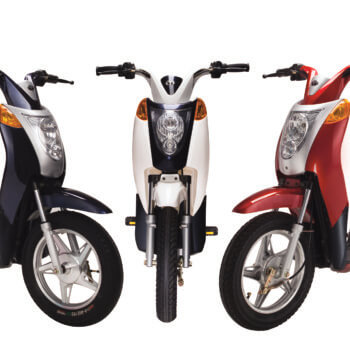These are the recent startup trends in the following regions: Philippines, Singapore, Thailand, Malaysia, Pakistan, and Myanmar.
Geography of Singapore played a key role in economic success of the country. Singapore is connected with many countries, which is optimum for international trade. As the center of different technologies and cultures Singapore is a leader in the IT industry.
To understand IT trends in Singapore, browsing app store rankings can be effective. Apps related to lifestyle, including messenger, dining, traffic information, leisure, and shopping, now lead the app store.
The main issues in Singapore nowadays are housing and traffic. Price of real estate is relatively high and based on that, supply of BTO apartment, ren etc. are main social concerns.
Social concerns include high prices of real estate, leading to higher rent prices. Singapore is also focusing on improving public transportation by developing mobile apps for taxis to reduce traffic accidents, and construct pedestrian roads.
Singapore
Japanese investors have exhibited keen interest in Southeast Asian tech companies. Singapore-based mobile payments provider MatchMove Pay announced a significant investment by Japanese financial services company Credit Saison. The actual funding amount was not disclosed. Hiroshi Rino, CEO of Credit Saison and the one who led the funding, said, “We believe that Southeast Asia’s growth of credit cards, prepaid cards, and smartphone payment will continue to gain momentum, and MatchMove Pay is uniquely positioned in those three parts.”
Internet security was one the biggest stories of 2014. Meanwhile, a fast-growing startup for Internet security is in Singapore. Such is the case of Banff Cyber Technologies. In its short lifespan, Banff Cyber gained over 30 large enterprises and over 20 government websites as their clients. Also the company is now connected to deals with the Philippines. The founder and CEO of Banff Cyber Technologies, Matthias Chin worked for ST Electronics and Cisco Systems as a security professional, and started Banff Cyber Technologies in 2012. He discovered that Asian customers are more concerned about restoration time after hacks than western counterparts. He developed a security service which can detect any unauthorized changes on website within five minutes.
Philippines
FinTech(Financial + Technology) is now the biggest topic in the startup world. E-commerce giant and startup incubator in Germany, Rocket Internet and Philippine Long Distance Telephone Company(PLDT) took a step towards their goal of becoming a strong contender in online payments in Southeast Asia. The companies announced they are reaching an agreement to form a 50-50 joint venture for online and mobile payment systems in the first quarter of 2015. As the joint venture begins, it seems that they can lead the market by creating synergy between Smart e-Money, PLDT’s mobile payment platform, and Rocket Internet’s e-commerce brands.
Nowadays, the number of individuals who are selling through Facebook, Twitter, Instagram, and other social channels is increasing. It keeps growing because it’s free and easy to reach out to customers. However, the problem of social commerce is that it is difficult to manage multiple channels and manage payment gateways. Philippines startup PocketMarket provides a simple solution to the problems. By using PocketMarket, merchants can manage various social channels altogether with a separate administrative page. Merchants can easily communicate with customers, and buyers can use different payment options, including Bitcoin. The fact that buyers do not need to use the app is another benefit.
Thailand
Now that people are getting used to analyzing their health, a number of startups are trying to use analytics for cars too. Thai startup Drivebot is one of these cases. Drivebot will notify you when a problem is detected and analyze trip logs after each drive. It can also suggest better routes based on the traffic. Drivebot is now fundraising through global crowd-funding platform Indiegogo and is planning to start shipping in February and launch the iOS app at the same time.
page365_2Sales on Facebook and other social network sites in Thailand is up to $500 million in 2014. In Thailand, social network sites are main channels for e-commerce. Thai startup Page365 is a dashboard for sellers in Thailand who run Facebook shops so sellers can easily manage customers’ orders and inquiries. Page365 has gained over 9,000 merchants and has secured $420,000 in seed funding. Page365 launched beta for merchants in Vietnam.
Malaysia
Online shopping startup in Malaysia, Shoppr, announced it has raised $400,000 in seed funding. The investment comes from East Ventures, 500 Startups, and an angel investor. Shoppr is an online store app that provides users with item recommendations based on their Facebook profile details and what they have “liked” or “disliked” on the app. CEO Kendrick Wong says that the funds will be used for increasing in-app engagement, and hiring Python developers to improve recommendation engine and increase the number of brands. Shopper team’s focus will remain in Malaysia, and look other at parts of Asia in the long run.
WIGU Games made the top-grossing apps in 20 countries. After watching a TED talk about the positive power of gaming, they founded WIGU Games Studio. At the beginning, the company struggled because the founders didn’t have enough technical knowledge, but fortunately, the local developer community helped the company. WIGU is planning to develop freemium versions in several countries and preparing for launching another apps such as Lawyer Life and Rockstar Life.
Pakistan
Startup92 launched as a hub for new startups in Pakistan. It’s a website that consists of newsleters and startup job boards. Imran Haider, founder of Startup92, says that entrepreneurs, investors, or interested users can find information about startups through the site. Thanks to increasing social media use and increasing access to technology, Startup92 will be a key information source for startups.
Despite all the hype about smart home technology, most people are not using app-connected home gadgets because their appliances, such as boilers, central heating system, and AC units, are outdated. That is why a startup in Pakistan is launching a product that enables control of older appliances through a smartphone. One of temperature controller that the company offers promises 20-40% savings of the cost. Zia Imran, the CEO of Zaheen Machines, says it is aimed initially at the Pakistan market because it is made to fit onto common Pakistani appliances. The company has already completed a test run involving 20 installations and the product will be more advanced. The company will improve the design for boiler systems to sell it in other countries.
Myanmar
MyChat, a product from the company MySquar, aims to be the center of the Myanmar’s social media, gaming, and messaging world. It seems possible because of increased internet usage and social networks in Myanmar. Although Facebook in Myanmar has over one million users, MySquar will win out in the end because the apps the company made – MyChat, MyStore, and MySocial – are tailored specifically for Myanmar.
written by Eddie Cho, editor for Venture Square, a Korean Platform dedicating on enlightening readers to those matters venture related. see more.








































